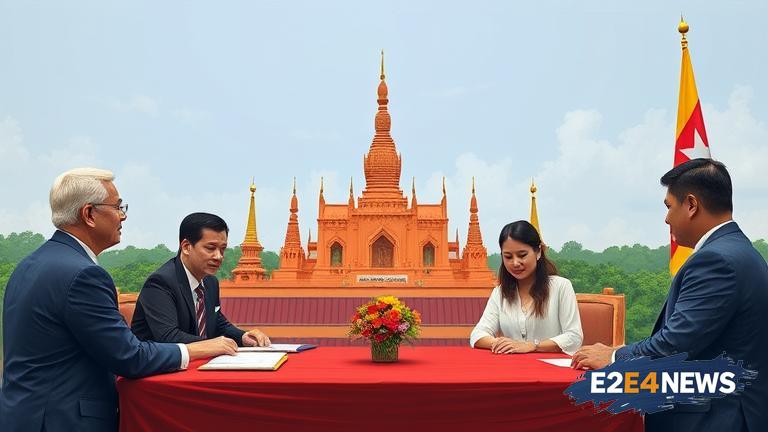Myanmar has taken a proactive step in response to the tariffs imposed by the Trump administration by offering to send a negotiation team to the United States. This move aims to address the trade barriers that have been affecting Myanmar’s exports, particularly in the garment industry. The tariffs have had a significant impact on Myanmar’s economy, which heavily relies on exports to the US market. The Myanmar government has expressed its willingness to engage in dialogue to resolve the trade disputes and seek a mutually beneficial solution. The decision reflects Myanmar’s strategic approach to maintaining its economic ties with major trading partners. The US has been a crucial market for Myanmar’s garments, and the tariffs have posed a challenge to the industry’s growth. Myanmar’s offer to negotiate demonstrates its commitment to fostering a stable trade relationship with the US. The country is also exploring other markets to diversify its exports and reduce dependence on any single market. However, the US remains a key partner, and resolving the tariff issue is essential for Myanmar’s economic stability. The negotiation team is expected to discuss various trade-related issues, including the removal of tariffs and enhancing market access. Myanmar’s initiative is seen as a positive step towards resolving the trade war tensions. The country’s proactive approach is also aimed at attracting foreign investment and boosting its economy. The outcome of the negotiations could have significant implications for Myanmar’s trade balance and economic growth. The international community is watching closely as Myanmar navigates the complexities of global trade dynamics. Myanmar’s efforts to engage with the US highlight the importance of diplomacy in resolving trade disputes. The country’s strategic location and growing economy make it a vital player in regional trade. The success of the negotiation team could pave the way for stronger trade relations between Myanmar and the US. Myanmar’s willingness to negotiate underscores its commitment to integrating into the global economy. The country’s approach is also influenced by its desire to balance relations with major economies amid geopolitical tensions. The US-China trade war has further complicated the global trade landscape, making it essential for Myanmar to secure favorable trade terms. Myanmar’s garment industry, which is a significant contributor to its economy, is particularly vulnerable to fluctuations in global trade policies. The government is keen to ensure that the industry remains competitive and continues to contribute to employment and economic growth. In conclusion, Myanmar’s decision to send a negotiation team to the US is a strategic move to protect its economic interests and strengthen its position in the global market. The outcome of these negotiations will be crucial for the country’s future trade relations and economic development.
